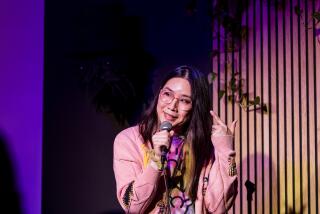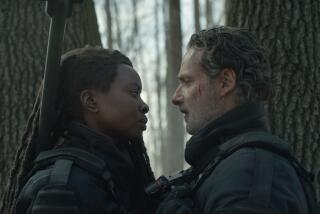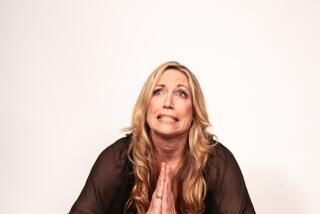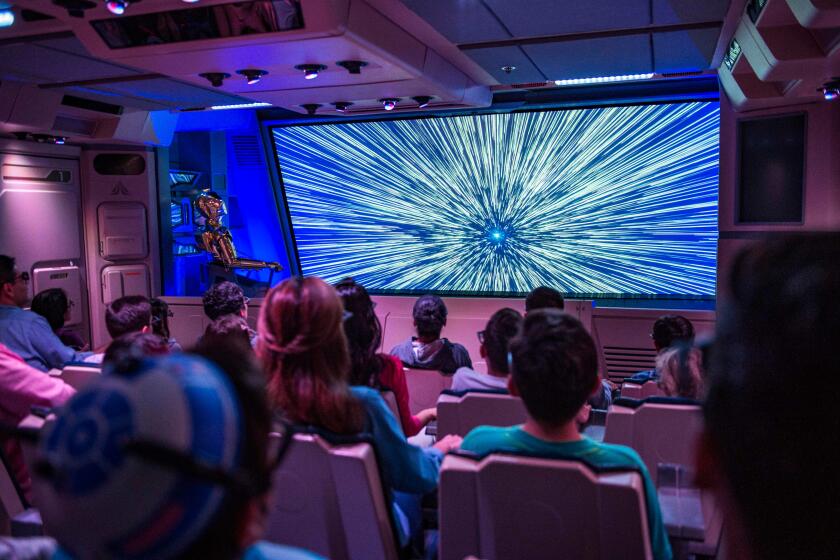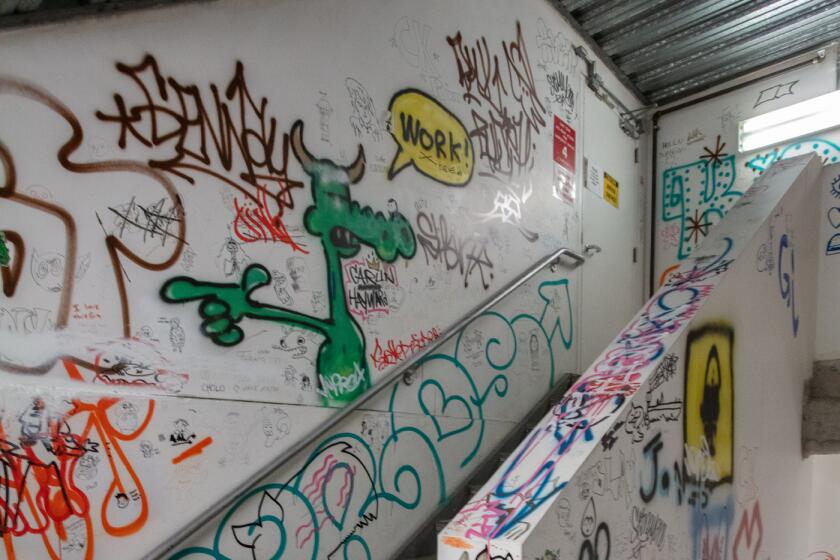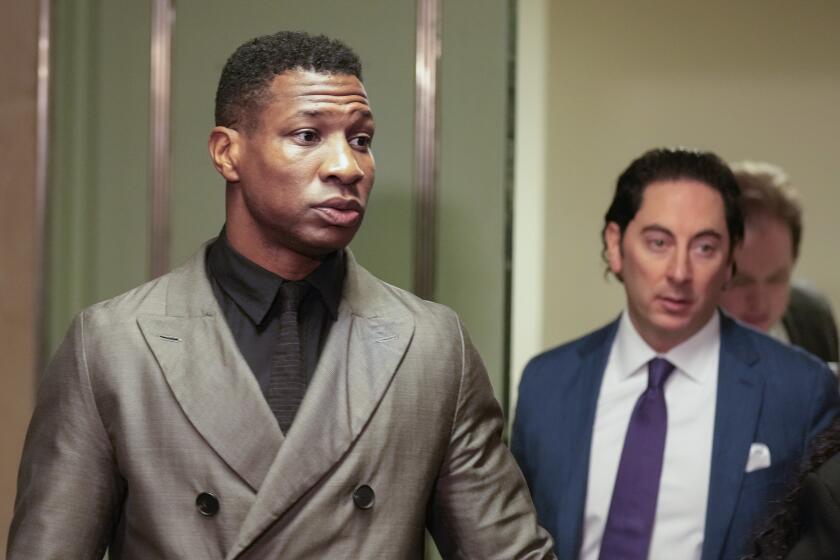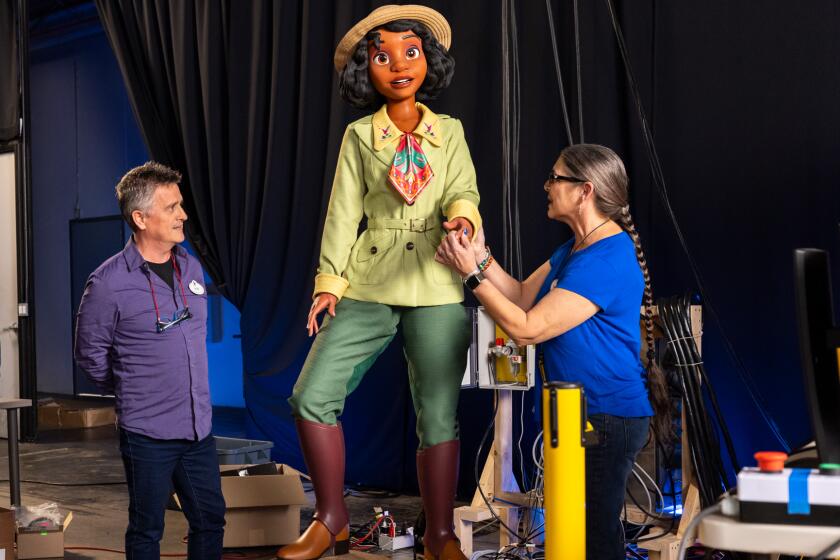Yvette Nicole Brown and Aisha Tyler lend diversity to Comic-Con’s historically white Hall H
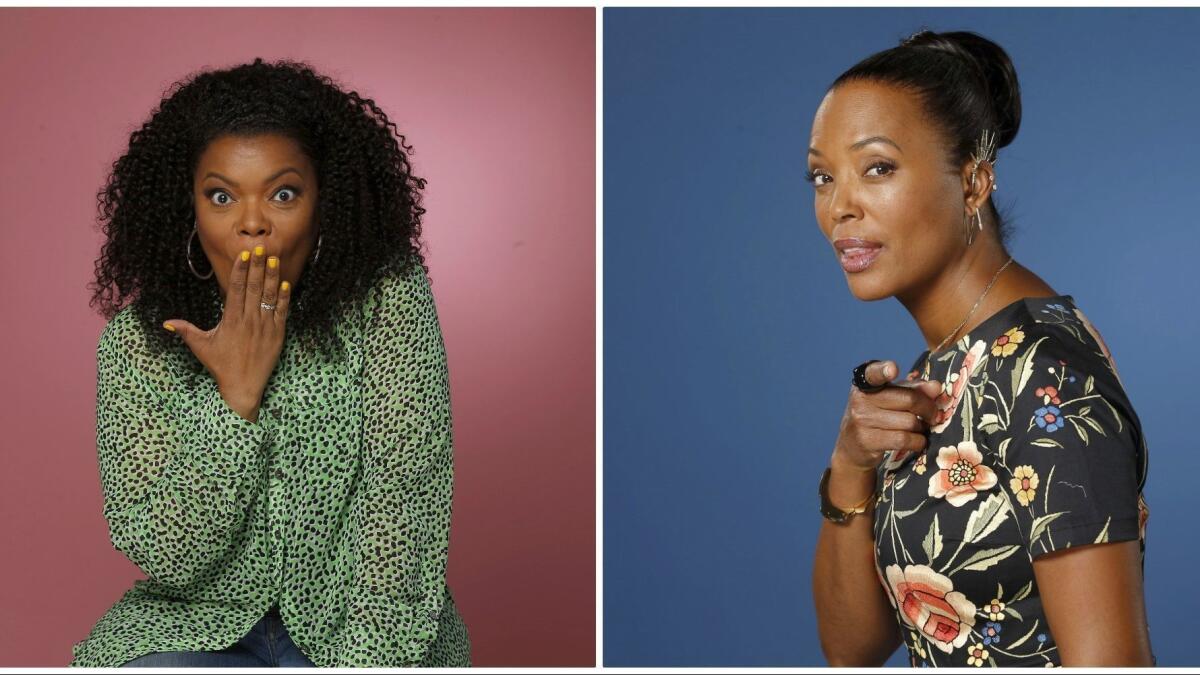
When Chris Hardwick agreed to step aside from his “Walking Dead” and
Fear the Walking Dead” moderating duties last month after accusations of emotional and sexual abuse by an ex-girlfriend, one of the most popular suggestions for his replacement was Yvette Nicole Brown.
A superfan of “The Walking Dead” and semi-regular guest on “Talking Dead,” the zombie drama’s Hardwick-led aftershow, Brown was an obvious choice.
“Yvette is very well-known to the ‘Walking Dead’ fan base,” said Aisha Tyler, a fellow comic and actress, ahead of San Diego Comic-Con. “Her nerd cred is immaculate. People will be excited to see her up there. They know her well and she’s really well-loved…. I think it’ll be pretty seamless.”
On Friday, Brown moderated an impressive three panels at the convention, not just for the “Dead” franchise but for Universal’s film presentation including M. Night Shyamalan’s “Glass” and the reboot of “Halloween.”
“I am overjoyed to see that so many nerds of color, especially women, are getting a chance to shine on the main stage at Comic-Con, but I don’t see it as new,” Brown said via email. “I’ve been blessed to attend Comic-Con as a panelist since my series ‘Community’ made its debut back in 2009.”
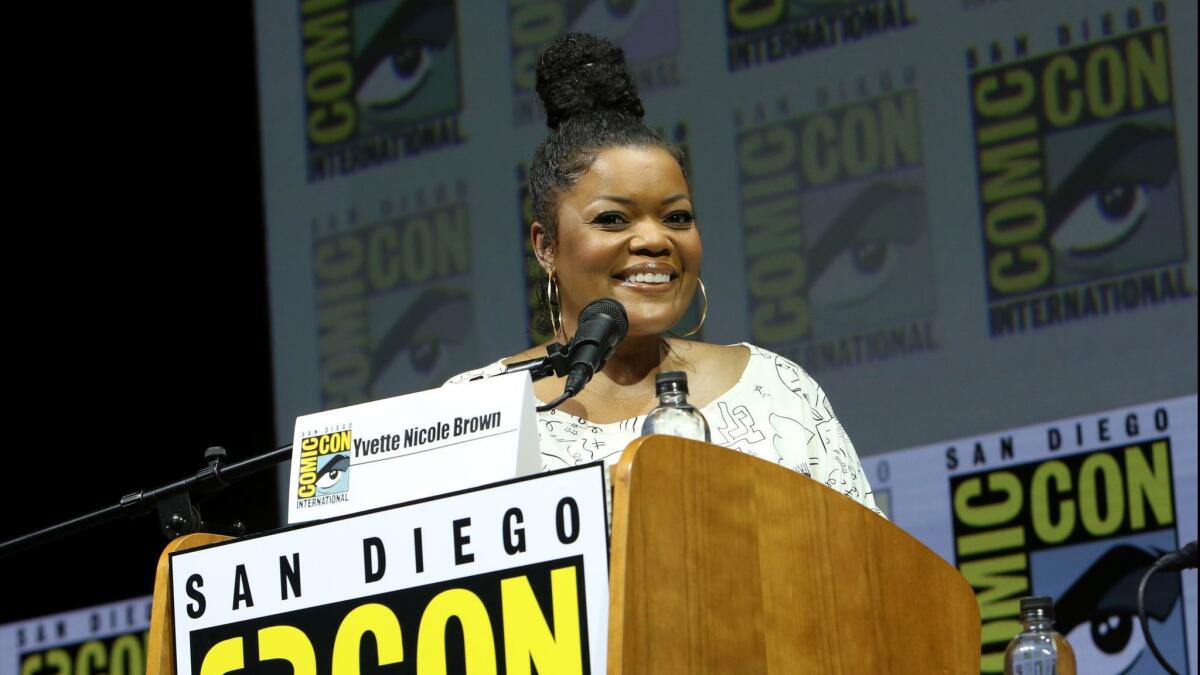
Though Brown has moderated large panels in the past (including ABC’s “Once Upon a Time” panel in Ballroom 20), this year marks her Hall H debut. Tyler, who was tapped to moderate Syfy’s “The Great Debate” panel Thursday and Warner Bros.’ Hall H theatrical presentation Saturday, is one of the few other women or people of color hosting a major panel at this year’s Comic-Con.
Tyler (who also moderated Warner Bros.’ Hall H panel in 2015) is the only woman of color to host a Hall H panel before this year . She said she thinks diversity among moderators is improving, though “it’s definitely not a watershed moment right now.”
“The fact that I’m hosting a Hall H panel and there are a couple other women that are moderating panels this year is an indication that there is an uptick,” she said by phone on her way to the convention. “I haven’t taken an encyclopedic look at everyone that’s moderating this year [but] … I think it’s changing for sure, but it is incremental.”
Brown’s emergence on Comic-Con’s biggest stage, along with her recently announced appointment as the interim host of “Talking Dead” when it returns in the fall, fuels hope that diversity among “nerd” properties will stretch beyond Comic-Con’s four-day annual convention.
“What I know for sure is that there is no color or gender when it comes to being a fan,” Brown said via email. “Fandom is a great equalizer. It provides an opportunity for everyone to dream ... and celebrate the entertainment and genres they love. It’s a gift to be welcomed every year. I am so grateful that our voices are an integral part of the tapestry.”
Though she allows that Comic-Con and gamer culture as a whole have historically been a “white male domain,” Tyler said she’s begun to see more women and people of color present among the fans, representing a more authentic demographic of nerd culture.
That demographic is further represented in 2018 among Comic-Con panels such as Entertainment Weekly’s “Women Who Kick Ass,” Syfy’s “Fangirls: Women Changing the Game” and smaller panels including “Black and Queer in Popular Media,” “Powerful Young Women in Disney Comics,” “Women of Marvel,” “Fearless Women,” “Comics Are for Everyone … Aren’t They?” “Women Rocking Hollywood,” “2018: Female Filmmakers, Pilots, Projects and Paving the Way to Parity” and “Fanbase Press: Latinx Comics Creators and Readers” — all of which were moderated by women or people of color.
“I love Comic-Con,” Tyler said. “I remember my first time it was like coming home, so I’m really happy to help young people come up who feel like that stuff is validated in their lives. I don’t know who coined the term, but it’s nerd-con. It’s a con for people that didn’t have an actual con. It’s a pretty sensational time.
FULL COVERAGE: San Diego Comic-Con 2018 »
“I think the fact of the matter is gamers are not a monolith and the fan base is not a monolith,” Tyler said. “When I was a kid, I was interested in punk rock and skateboarding, and people would tell me that’s not what black people do. And I got that from white people and from black people.
“When you say, ‘Black people don’t like this’ or ‘Black people only like this,’ you are dehumanizing them, you are de-dimensionalizing them. But I think it’s really important for there to be representation for these young people. I think they’re excited to see people like them validating and representing the stuff that they’re passionate about.”
Diversity comes from the bottom, Tyler said, and fans are increasingly demanding to see themselves reflected among the talent and moderators onstage.
“Diversity of representation brings diversity of perspectives, diversity of experience, diversity of storytelling,” she said. “The core of nerd-dom is about telling extraordinary, unusual, outlier stories. And so by its very nature nerd culture should be the most inclusive of all popular cultures because it’s made up of people that have been excluded historically. This is a band of outsiders, and that means that all should be welcome.”
Tyler said one of her favorite moments at a Comic-Con (New York Comic-Con to be precise) was about three years ago when she spotted a black woman dressed up as Mario from Super Mario Bros.
“There’s no rule book saying that Mario has to be an Italian man, because Mario is not real,” she said. “She was just perfectly representative of what nerd culture should be — wildly inclusive, full of imagination and playful.”
More to Read
The biggest entertainment stories
Get our big stories about Hollywood, film, television, music, arts, culture and more right in your inbox as soon as they publish.
You may occasionally receive promotional content from the Los Angeles Times.
